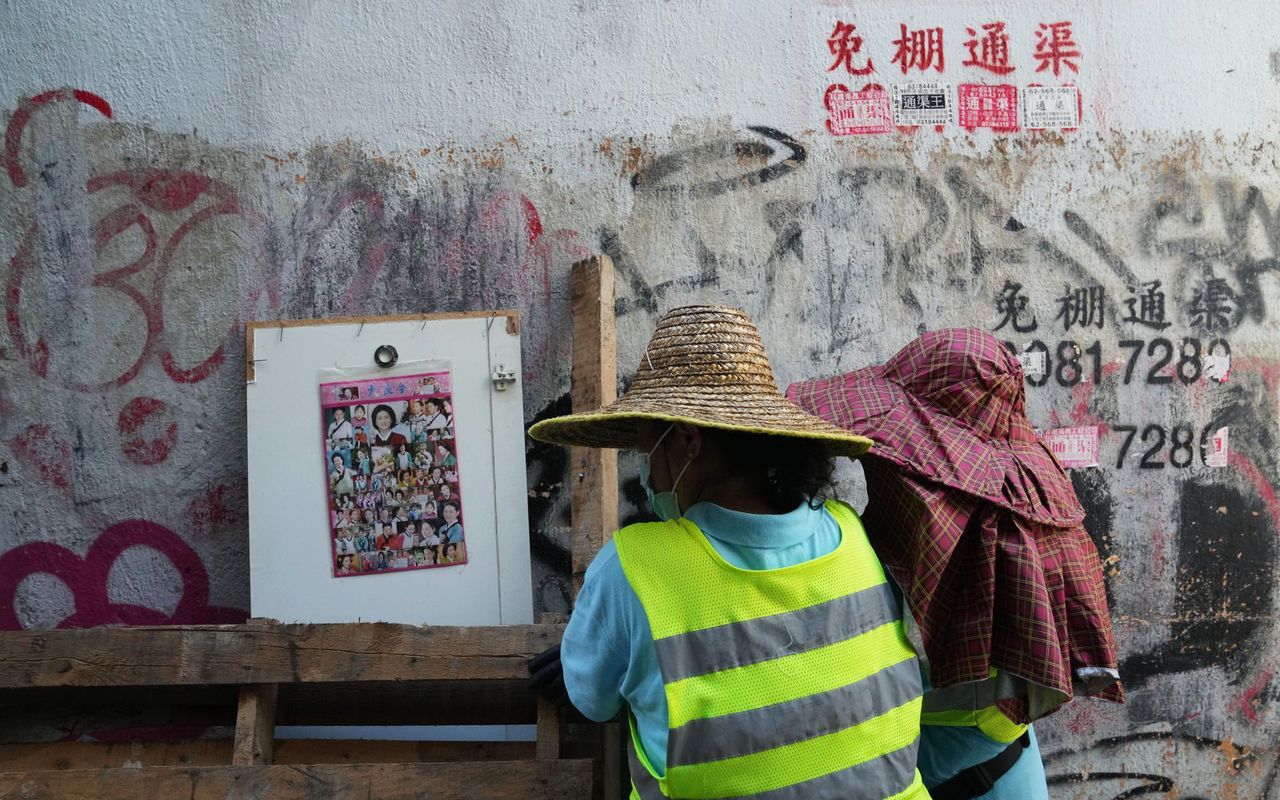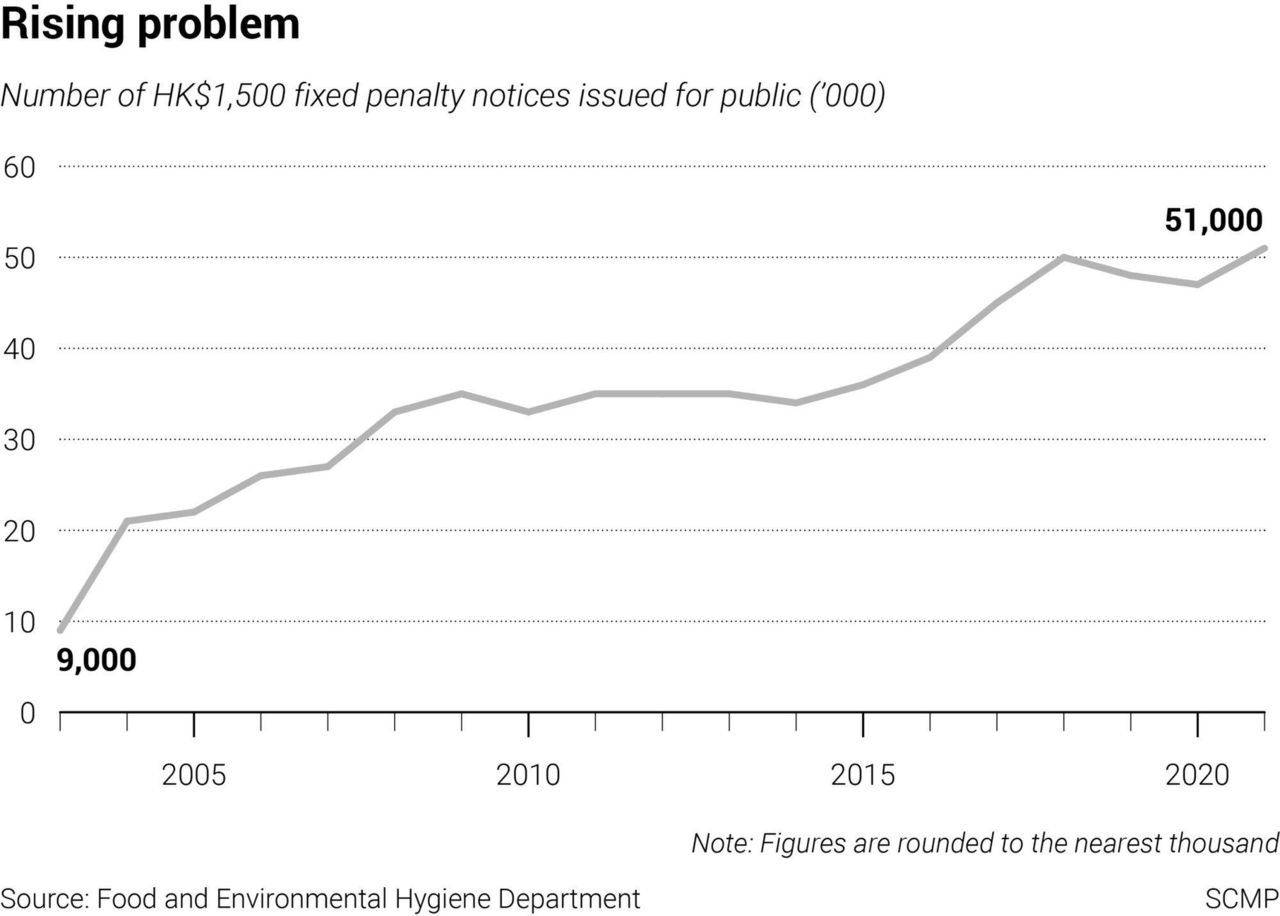Hong Kong News

‘Nightmarish cycle’ of trash: Hong Kong to move towards heavier littering fines
Hong Kong will move towards heavier penalties for littering, with officials saying the city has fallen into an “unremitting, nightmarish cycle” of rubbish and rodents after inspecting street hygiene conditions.
A visit by officials to Yau Tsim Mong district on Sunday marked the beginning of a three-month clean-up drive, dubbed the “Hong Kong New Cityscape” campaign, which was in line with Chief Executive John Lee Ka-chiu’s election pledge to enhance liveability in the city.
Campaign leader Warner Cheuk Wing-hing, the deputy chief secretary for administration, said a review on littering was necessary as the current HK$1,500 (US$191) fine to deter litter louts had been in place for almost 20 years.
 Warner Cheuk (front left) is heading the three-month clean-up campaign.
Warner Cheuk (front left) is heading the three-month clean-up campaign.
“Some members of the public have suggested the fine should be raised to HK$10,000. While punishment has to create enough deterrent effect, it should also be reasonable and in proportion to other laws,” he said after a site visit, without providing a clear timetable for the review.
“The government is duty-bound to keep Hong Kong clean. But I also want to say we have fallen into an unremitting, nightmarish cycle. As we keep cleaning, residents keep throwing things out,” Cheuk said after patrolling an alley in Prince Edward.
He added that apart from the fine, the government would study whether existing regulations provided sufficient law enforcement and investigative powers to officers, while more CCTV cameras would be installed in hygiene black spots as needed to fight illegal waste disposal in the future.
Footage released showed Cheuk, with environmental and development ministers, inspecting a narrow alley where he spotted garbage, including discarded motorcycles, unclaimed plants, stagnant water in ditches and other clutter, commenting that the area looked like a “motorcycle cemetery”.
He also visited poorly managed buildings in Kowloon City and inspected abandoned and damaged signboards in Sham Shui Po.
Authorities earlier listed 87, 26 and 25 locations in Kowloon City, Yau Tsim Mong and Sham Shui Po respectively as hygiene black spots. Tai Po has the most hygiene black spots, with some 130 making up 20 per cent of the list.
 Workers help clean up black spots in Prince Edward.
Workers help clean up black spots in Prince Edward.
The two-phase citywide campaign, with 19 overnight anti-rodent teams, will focus on issues including illegal refuse deposits, dripping air conditioners, rodent infestation and street obstructions.
The first phase, which started on Sunday, will focus on managing hygiene with a specific goal of targeting more than 600 black spots. The second phase slated for October will be aimed at improving the cityscape, such as gardens and parks.
Cheuk dismissed suggestions the visit was just a publicity stunt, adding that departments would continue with the hard work.
“Residents expect the government will show some achievements in the short term, so our first stage is to clean up Hong Kong while the second stage is to beautify the city,” he said.
“The action will continue regardless of the first or second stage.”
Lawmaker Elizabeth Quat of the Democratic Alliance for the Betterment and Progress of Hong Kong said an increased penalty was needed to combat the rise in littering in recent years.
Quat, who chairs the Legislative Council’s environmental affairs panel, declined to say how much the fine should be, but suggested that a minor increase would not be effective in preventing people from littering.
“The government must duly carry out its law enforcement work and cultivate a cleanliness culture to go with the penalty,” she said.

The Food and Environmental Hygiene Department issued about 51,000 fixed penalty notices last year, up from 34,000 in 2014. For years, authorities said that the time it took to prosecute the offence and the low fines had failed to stop the problem.
Edmond Lau Shiu-long, a senior advocacy officer at the Green Earth, a local environmental group, said the fine’s lack of deterrence was not the issue.
“The problem is the inability to enforce the law effectively. The administrative cost is too high,” he said, adding that authorities should instead consider using waste collection vehicles to help residents.
In the United States, penalties for littering vary by state. Other than a monetary fine, offenders in many states, including California and Arkansas, are subject to community service.
In Britain, people who litter can be fined or face prosecution in court. Authorised officers can issue a fixed penalty charge of up to £150. If the offender is prosecuted and convicted in court, the fine could rise to £2,500.
In Australia, individuals can face a maximum charge of A$5,000 for littering.











